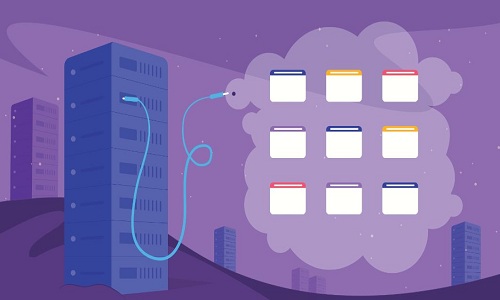How Secure is a Shared Server?

When you need web hosting solutions, you can choose from different types of hosting plans, like shared hosting, VPS hosting, dedicated hosting and so on. For companies that are being launched or for the start-ups, shared hosting plans tend to work best because these are very cost-friendly. Smaller businesses especially find shared servers a good option as these are affordable for them. They are also typically easier to run and you do not need a lot of technical expertise to implement the plans. However, at the same time, the shared server is not as secure as you would expect it to be. There are in fact many security threats which makes signing up for shared hosting plans risky for some businesses, particularly those handling ultra-sensitive data.
How is shared hosting risky?
In shared hosting, there are multiple websites sharing the same server resources. So, resources are shared amongst many users which in turn bring down the costs for each of these client enterprises. However, shared server means that all these websites will also share a common IP address. This is where the problem really lies; a common IP address brings forth many security issues which can harm your website in many ways.
What are the security risks you can face with a shared server?
- Although the sites sharing a common server may have different content and distinct domains and sub-domains, they all have a server in common. So, the threats from hackers are great. In case your neighbor’s site is hacked for some reason, chances are that you site security will also be compromised. Such instances occur when the hacking attempts cause very severe breaches which can affect the entire server.
- When you share the same IP address, it also means that if any of the neighboring websites engage in malicious activities, it will affect your website too. So, when a neighboring site is blacklisted, it can damage your business reputation and can bring down your rankings in search engines too.
- When you sign up for a shared server, the memory and CPU or processing power of the server will also be shared. Since the RAM and CPU are shared by many sites, each client will be given a definite amount of memory and processing power for its needs. When any of your neighbors use up more than his share of resources, the others automatically get affected.
- Since the IP address is shared by multiple website, whenever clients’ experience Denial of Service attacks, other sites also become vulnerable to such attacks. Shared hosting also makes website rather prone to malware attacks. Other kinds of harmful data may also be uploaded to the various websites. These can put the data in your website at risk. Such harmful data are typically introduced to shared servers through the loopholes in a client website and these can also be used for stealing data.
How to mitigate security risks in shared servers:
- Security experts recommend that if you can keep your site databases away from site management and content, hackers will not be able to access and delete valuable information even if there is breach in the server. But, to separate the databases from the server will require the business owners to carry out many extra steps. So, to tackle this threat, it is advisable for a website to choose a good web hosting service which has enough experience in thwarting common hacking attempts.
- It is also recommended by security experts that instead of choosing shared hosting, smaller enterprises can consider signing up for affordable VPS hosting solutions. In this type of hosting, the server resources do not have to be shared by clients. They can enjoy definite resources that are allotted to them by the host and they are free to scale these up and down depending on the traffic demands. Although many clients will reside on the same physical server, they can run their own operating systems, custom software or applications in their virtualized environments.
- One of the most important things that a site owner will also have to look into is preventing information attacks in a shared hosting environment. So, it is vital that site owners discuss their security issues at length with the hosting provider. Those which can offer implemented cage structure can guarantee high security than those without this feature. Another important question a site owner needs to ask its hosting provider is whether it will be allowed to embed binary codes during site development. Binary codes can well be sources for entry for any hacker particularly when these have not been properly scrutinized by programmers of the hosting services.
- Finally, the main problem with shared hosting plans is that hacking may jeopardize data security. When a server is attacked, the data on all the sites is automatically vulnerable to attack. This means that loopholes in the security structures of neighboring sites can lead to more security problems for all the websites in the future. But, such information attacks may be minimized when the hosting provider you have signed up with can include highly advanced security features in its packages.





